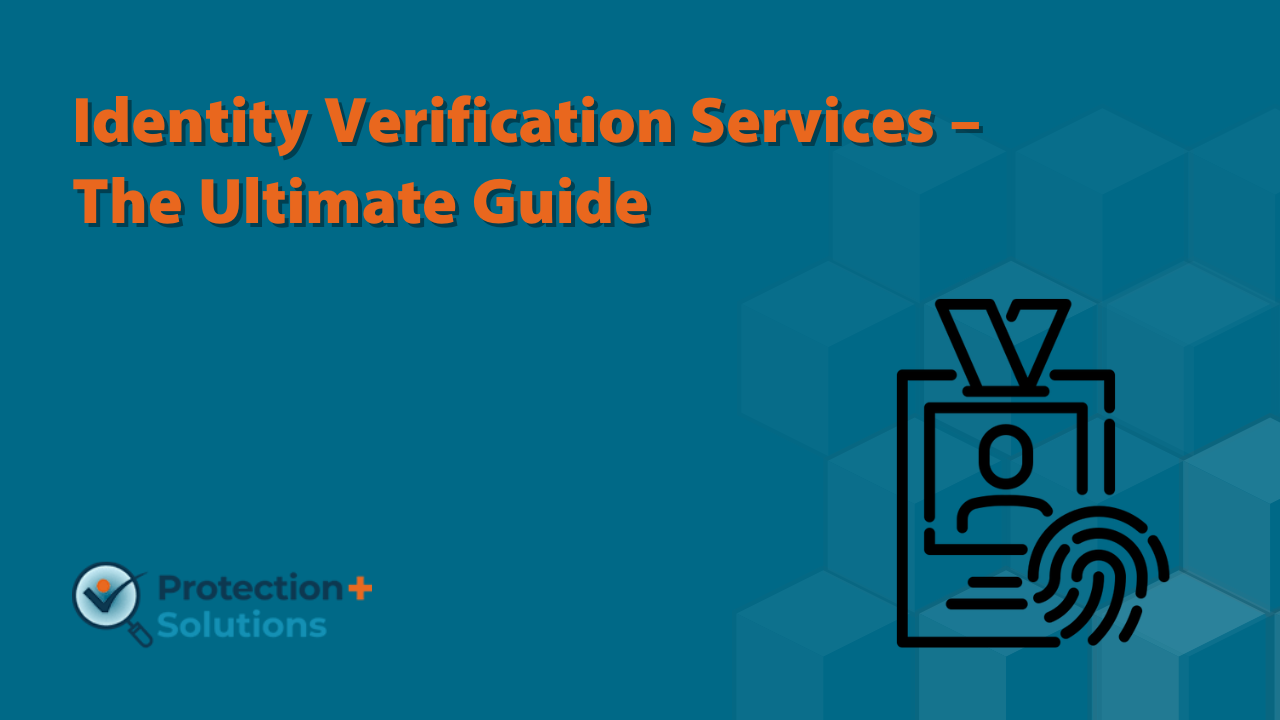Identity Verification Services – The Ultimate Guide

Ever signed up for a banking app only to get stuck uploading your ID? That’s identity verification at work. In today’s world of rising cyber threats, verifying who someone is has never been more crucial. Let’s break it down simply.
What is Identity Verification?
Definition
Identity verification is the process of ensuring someone is who they claim to be. Simple as that. It checks your ID, face, or documents to confirm your real identity.
Why It Matters in Today’s Digital Age
With fraudsters lurking everywhere online, identity verification is your digital bouncer, keeping the bad guys out and ensuring businesses only deal with real people.
How Do Identity Verification Services Work?
Step-by-Step Process
- User signs up or logs in.
- Service asks for ID, selfie, or document upload.
- AI scans and matches details with government databases or biometric templates.
- Verification is confirmed or flagged for manual review.
Technologies Used
AI & Machine Learning
These smart algorithms detect fake IDs, forged documents, and spoofed selfies in milliseconds.
Biometrics
Fingerprint, facial recognition, and even iris scans are becoming mainstream, especially in banking and travel.
Document Verification
This checks government-issued IDs for authenticity, expiry, and tampering signs.
Types of Identity Verification Services
KYC (Know Your Customer)
Mandatory in finance, KYC verifies customer identities before onboarding to prevent fraud and money laundering.
KYB (Know Your Business)
For B2B dealings, KYB checks business legitimacy and ownership structures.
Age Verification
Used by online alcohol retailers or adult content sites to restrict underage access.
Biometric Verification
Think Apple Face ID or airport e-gates – fast, secure, and contactless.
Two-Factor Authentication (2FA)
Adds an extra layer of security by combining passwords with OTPs or biometric scans.
Benefits of Using Identity Verification Services
Enhanced Security
Reduces risks of identity theft and account takeovers significantly.
Regulatory Compliance
Helps meet KYC/AML laws globally, avoiding hefty fines.
Fraud Prevention
Blocks fake accounts and synthetic identities from harming business operations.
Improved Customer Trust
Users feel safer knowing their platform values security and compliance.
Challenges in Identity Verification
Privacy Concerns
Users worry about data misuse or breaches when sharing IDs and biometrics.
False Positives & Negatives
Errors in verification can block genuine users or let fraudsters slip through.
Integration Complexity
Adding verification solutions into existing systems can be technically challenging.
Choosing the Right Identity Verification Service Provider
Key Factors to Consider
- Accuracy rates
- Compliance standards supported
- Speed of verification
- Ease of integration (APIs & SDKs)
- Global coverage
Top Providers in the Market
Some leading names include Jumio, Onfido, Trulioo, IDnow, and Veriff.
Identity Verification in Different Industries
Banking & Finance
Critical for account openings, wire transfers, and preventing financial crimes.
E-commerce
Helps avoid chargebacks and ensures customers are legit.
Healthcare
Used for patient onboarding, e-prescriptions, and telemedicine consultations securely.
Gaming & Gambling
Regulated industries require strict age and identity verification to operate legally.
Future of Identity Verification Services
Blockchain Integration
Decentralised identity solutions will give users more control over their data while increasing security.
Advanced Biometric Solutions
Expect wider use of voice recognition, gait analysis, and even behavioural biometrics soon.
Best Practices for Businesses
Data Privacy & Compliance
Follow GDPR and local data laws to handle user data responsibly.
User Experience Optimisation
Keep verification steps simple, fast, and mobile-friendly to reduce drop-offs.
Common Myths About Identity Verification
- Only banks need it – False. Almost every industry today needs identity checks.
- It’s expensive – Costs are far less than losses from fraud.
- It invades privacy – Actually, it protects user data by blocking imposters.
Conclusion
Identity verification services are no longer optional – they’re essential shields against rising cyber fraud, ensuring only genuine users access your services. From KYC to biometrics, adopting the right solutions will boost security, compliance, and customer trust, making your business future-ready.

